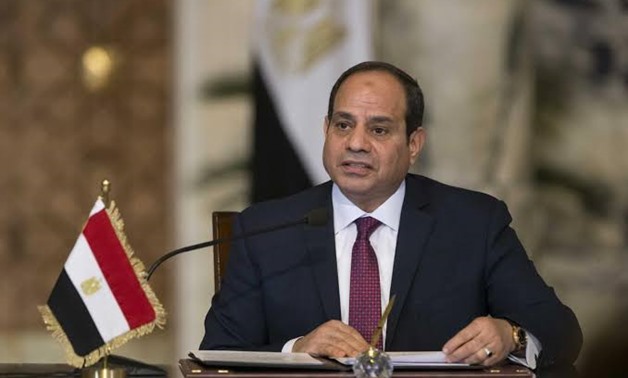
FILE PHOTO: Egypt's President Abdel Fattah al-Sisi speaks during a news conference in Cairo, Egypt December 11, 2017. REUTERS/Alexander Zemlianichenko/Pool
CAIRO - 22 July 2019: President Abdel Fatah al-Sisi issued a decree renewing the state of emergency in Egypt for 3 months starting Thursday, July 25, for the ninth time in a row since it was imposed in April 2017.
The Parliament approved the decree earlier this month. According to the Egyptian law, the Parliament's approval on presidential decisions to renew the state of emergency in the country is a must.
The presidential decree tasks security and military forces to take all measures to protect the state from terrorism threats and preserve citizens and national properties.
Also, Prime Minister Mostafa Madbouli issued a decree renewing a dusk-to-dawn curfew for 3 consecutive months on some areas of North Sinai, which witnessed numerous terror attacks especially since 2013.
The curfew decision will be applied on areas from Tal Rafah, in the eastern part of the Sinai Peninsula, to the international border and from Awja to Mount Halal, MENA news agency reported. The decision was published in Egypt's official Gazette.
According to the decision, the curfew will be applied from 7 p.m. to 6 a.m. in these areas, except for Arish and the international road where the curfew will be applied from 1 a.m. to 5 a.m. only.
The curfew decision will expire in conjunction with the end of the state of emergency decided by President Sisi.
The state of emergency in the Egyptian state was declared in April 2017 for 3 months following two church bombings that claimed the lives of 47 people, and has been renewed since then.
Legal issues
The decree states that the Armed Forces and police would assume the responsibility of taking necessary measures meant to eliminate the risks of terrorism and its funding and protect homeland security and the lives of citizens and public and private property.
The third article stipulates that the prime minister will be entrusted with carrying out tasks of the president mentioned in law no. 162/1958 with regard to the state of emergency.
Those disobeying orders issued by the president will be punished by prison sentences under the provisions of law no. 162/1958, the fourth article read.
The fifth article entails putting into effect the president's decree after the approval of a parliamentary majority, which constitutes two thirds of the lawmakers.
Under article six of the decree, the decision should be published in the gazette.

Comments
Leave a Comment